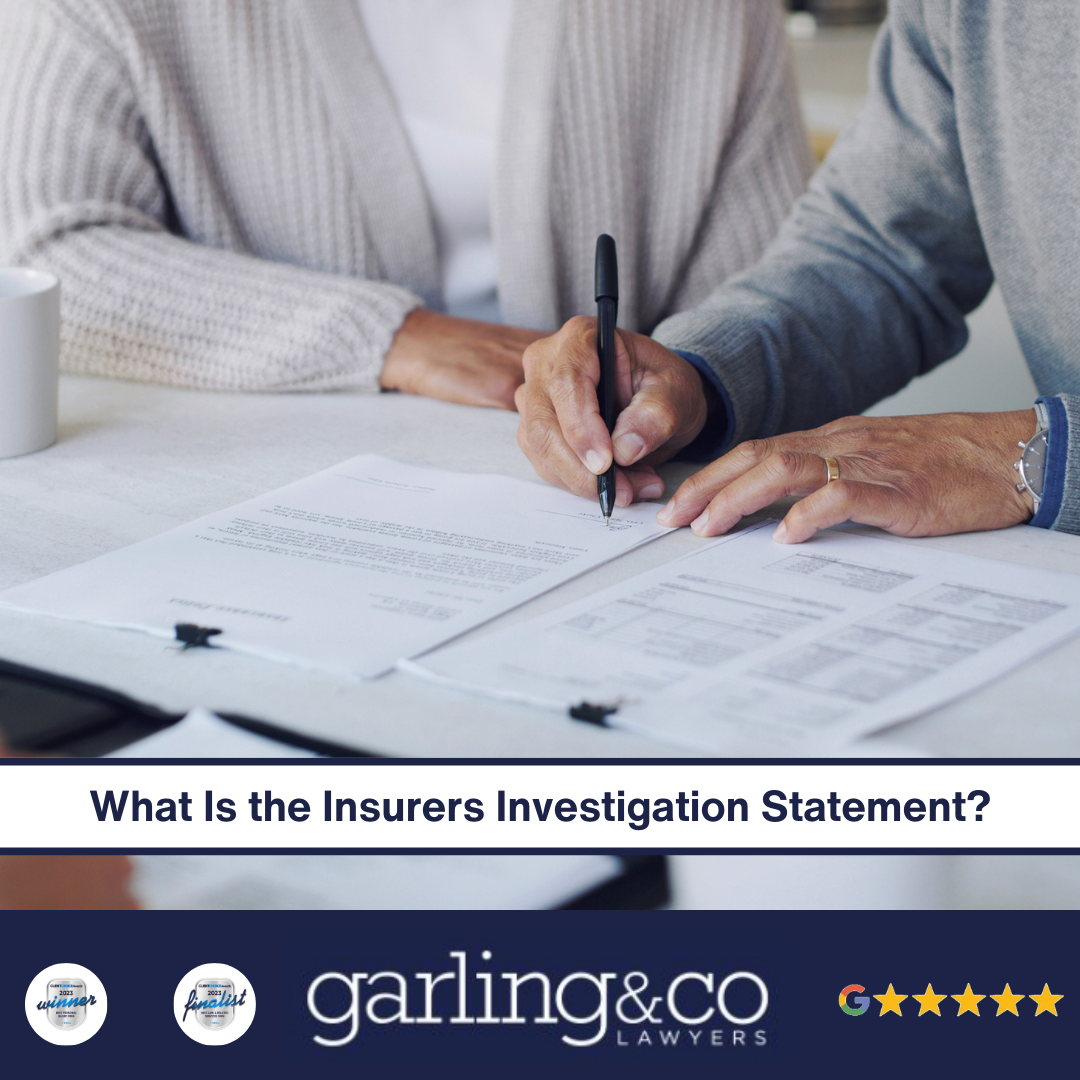
We advise that you do not sign any investigation statement before first reading it thoroughly and seeking advice from a lawyer.
What is an insurance investigation report?
An insurance investigation report is a detailed document prepared by an insurer to assess the validity and legitimacy of a workers compensation claim. It outlines the circumstances surrounding the injury, including the claimant’s version of events, witness statements, medical reports, and any other relevant evidence. The report is crucial in determining whether the insurer will accept or deny the claim.
What is included in the investigation report?
An insurance investigation report typically includes:
- Claimant information: Personal details, employment history, and contact information.
- Incident details: A comprehensive description of the injury, including date, time, location, and witnesses.
- Medical information: Details of injuries, medical treatment, and prognosis.
- Employment information: Job description, work duties, and workplace safety procedures.
- Witness statements: Statements from any individuals who witnessed the incident.
- Investigator’s findings: Summary of the investigation, including evidence collected and conclusions drawn.
- Recommendations: Suggestions for further action, such as medical assessments or surveillance.
Note: The specific content of an investigation report may vary depending on the insurer and the complexity of the claim.
Do I need to sign the statement?
No! Most investigators will request you sign the statement urgently. This is because the insurer will often paraphrase what you have said or change some of the facts and circumstances surrounding your injury which may not reflect what actually occurred and may be in favour of the insurer.
It is important to have an accurate statement as if the insurer declines your claim on the basis of the signed statement, which is wrong, it will be harder for you to challenge the decision as you have already agreed to the incorrect statement.
What should I do if the insurer appoints an investigator and wants a statement from me?
Here are the things you should do:
1. Request a copy of the statement in word format
2. Make any changes to the statement
- Don’t be afraid to delete what the investigator has written and write what really happened
- If it is completely wrong draft a whole new statement!
3. Contact a lawyer to discuss the statement
Signing a statement seems like such a small thing to do, but in workers compensation claims it can make a big difference when it comes to challenging the insurers decision.
It is best to read all documents that the insurer puts in front of you, and if you don’t understand it or are not sure whether you should sign the document seek the advice of an Accredited Specialist in Personal Injury Law. It is also important to remember that workers compensation claims are funded so you don’t need to pay for any legal advice in relation to your workers’ compensation claim.
What do insurance investigators ask?
Insurance investigators typically ask questions about:
- The incident: How the injury occurred, who was involved, and what actions were taken immediately after.
- Your medical condition: Details of your injuries, medical treatment received, and any previous injuries or health conditions.
- Your employment: Job description, work duties, and any relevant workplace safety procedures.
- Your claim: Details about your workers compensation claim, including benefits sought and any previous claims.
- Personal information: Your contact details, employment history, and general background information.
Can I refuse an insurance investigation?
Yes, you can refuse an insurance investigation. However, it’s important to understand the potential consequences.Refusing to cooperate with an investigation may delay or hinder the claims process, and the insurer may use this as a reason to deny your claim. It’s advisable to seek legal advice before making a decision.
Got more questions about your workers compensation claim?
No problem! Feel free to contact our office at (02) 8329 9500 or complete a free case assessment here.












